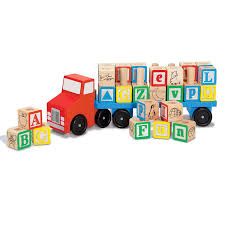
Some Christmas gift tips for kids from the American Academy of Pediatrics include old-fashioned recommendations: that non-video game, interactive toys for play between humans and challenging toys should be high on the list this holiday season.
Choosing age-appropriate toys in a digital age may be a trick in an economy in which the marketing of video games, high-tech gadgets, and other digital wonders tend to dominate advertising and commercials.
But the AAP guides families and doctors in a clinical report, to get back to the basics – especially for younger children. The report was published online Monday and is set for hard-copy publication in Pediatrics in January 2019.
Aimed at children ages birth through school age, the report cautions parents against using digital toys as replacements for "traditional hands-on toys and games that fuel the imagination and aid in healthy development."
In a throw-back to the pre-digital age, when kids asked for collectible Hot Wheels cars and plastic race tracks, dolls that cried at the touch of a button, Easy Bake Ovens and GI Joe action figures, the report encourages parents to gift children with toys that won't leave them staring at a screen, dealing with virtual characters and settings.
"Play is essential to optimal child development because it contributes to the cognitive, physical, social, and emotional well-being of children and youth," reads the opening statement in the report's abstract.
While the report does not recommend completely dropping a child's access to digital toys, it does remind parents that virtual or digital-based toys are not always the most educational, despite advertising messages.
"Research tells us that the best toys need not be flashy or expensive or come with an app," physician Aleeya Healey said in the study. "Simple, in this case, really is better."
Matching hands-on toys with a child's ability and skills is best.
Toys that specifically encourage interaction between a parent, a babysitter or a caregiver and the child rank high on the list.
Building relationships through play with toys starts when a child is an infant, when offering warm, supportive play is important. As children grow, providing toys that give them a chance to pretend and use their imaginations is vital to their growth – provided the toys are age-appropriate.
Books are a timeless example of guiding young children in pretending and playing roles.
Avoid any digital gadgets or virtual games that may over-stimulate a child. Also, avoid any stereotypical games or toys that may pigeonhole a race or gender, the report advises.
The report also recommends limiting a young child's video game and computer game use. Total screen time, including television and computer use, should be less than one hour per day for children 2 years or older. Screen time should be avoided for those younger than 18-to-24 months.
Additionally, the report says that children ages five and younger should play with computer or video games only if they are developmentally appropriate, and when a parent or babysitter is present.
Uncommon Knowledge
Newsweek is committed to challenging conventional wisdom and finding connections in the search for common ground.
Newsweek is committed to challenging conventional wisdom and finding connections in the search for common ground.
About the writer
To read how Newsweek uses AI as a newsroom tool, Click here.








